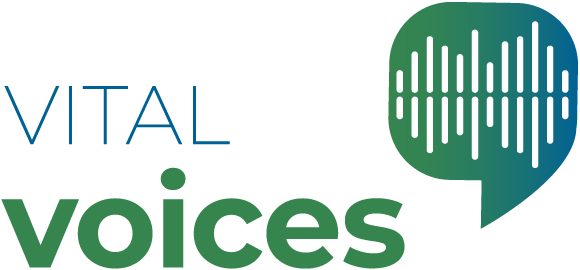Mikey’s Story
Name: Mikey
Gender: Male
Age: 40
Who is Mikey?
Mikey lives in a private boarding house in Melbourne, Australia. He describes his ethnic background as ‘Canadian’: like both of his parents, Mikey was born in Canada. His primary source of income is a social security benefit for people who are unemployed.* He says that social services should give out more information about hepatitis C because it’s an issue that ‘people should be aware of’.
Brief Outline:
Mikey learned about hepatitis C when his friend was diagnosed with it around 2017. While he now gets regular blood tests, he says that doctors and other social and community services should give out more information about hepatitis C and available treatment. For Mikey, increasing awareness about the virus is important. He ‘wouldn’t be surprised’ if he got hepatitis C, but he explains that if he did get it, he would need to research the current treatment because his ‘information is outdated’.
While he has never been diagnosed with hepatitis C and now gets regular tests, he says he would prefer it if his doctor gave him more information about the virus: ‘I think it’s important to know, like, what percentage of folks, especially, like, IV drug users, have it, and have contracted it unknowingly and are walking around.’
Using COVID-19 as an example, Mikey observes that lack of awareness about blood-borne virus status is an important issue: ‘I guess it would be like people having COVID now, and being attacked for it and everyone [saying], “Oh, you’ve had COVID? Well, you are part of the problem.” It’s [more accurate to say], “Well, no, I came into contact with someone who didn’t know they had it, and then they got it and didn’t know they had it.” Like, it’s no-one’s fault, [hep C is] kind of the same thing, where it’s nobody’s fault.’
According to Mikey, social and community organisations need to provide more information about hepatitis C to their clients. He explains that while he hears about it in LGBT-specific services, it doesn’t come up in other services: ‘All through the Salvation Army crisis housing and stuff, you never hear anything about hep C ever, and I feel like it’s something that, yeah, people should be aware of.’
However, he also thinks that even LGBT-specific services could provide more information on the new treatment: ‘I didn’t even realise that there was a new treatment actually, I had no idea […I haven’t noticed] anything that would advertise this new treatment, [and] I would have noticed.’
Mikey explains that even though he gets regular blood tests for hepatitis C, a diagnosis wouldn’t be a shock. It would, however, prompt him to seek out more information. As he puts it, ‘I wouldn’t be surprised, and I probably would go and read about the current treatments, because my information is outdated, I think.’
*Services Australia JobSeeker Payment.
Mikey (M, 40, no treatment experience) says that he found out about hepatitis C after a friend was diagnosed with it around 2016. He explains how he primarily thinks about hepatitis C in terms of its potential connection with his sex life.
It was […] probably about five years ago [that I found out about hep C], you know, I saw a poster or something and thought, ‘Okay, cool’ and I didn’t really look into it much until it became relevant to my life, you know … Yeah, it would have been when I got diagnosed with HIV when I first started hearing about it and wondering what it was, and then when [my friend] got it, he talked to me a lot about it […] It’s more my sexual patterns [that makes hep C relevant to me]. I’ve been unsafe more than safe I’d say in the years of my sexual history, and even, to be honest, like, I’m very good about being open and communicating with anyone who wants to talk about it, but I don’t use condoms very well […] I’m very safe with my injecting, like, I don’t share needles, I don’t re-use needles, I’ve got all the safety gear with me, I even carry a kit, so in terms of that, like, it’s easier to get through sharing needles and through injecting than, I think, sexually.
Also speaking about the issue of awareness about treatment, Mikey (M, 40, no treatment experience) says that social and community organisations need to provide more information about hepatitis C to their clients.
All through the Salvation Army crisis housing and stuff, you never hear anything about hep C ever, and I feel like it’s something that, yeah, people should be aware of […] Hep C […] like, I wouldn’t be surprised [if I acquired it in the future], and I probably would go and read about the current treatments, because my information is outdated, I think […] I didn’t even realise that there was a new treatment, actually. I had no idea […I haven’t noticed] anything that would advertise this new treatment, [and] I would have noticed.
Mikey (M, 40, no treatment experience) explains that he didn’t know about the new treatment and he would like to see a push to increase hepatitis C testing and awareness.
Yeah, I think there should be a push for an information drive, like, [letting people know that] the treatment is feasible and there is treatment that is not going to completely alter your life process, because, you know, I consider myself generally pretty well informed on things and I didn’t even know that […Increasing the rates of hep C testing is important too.] I think it’s important to know, like, what percentage of folks, especially like IV drug users, have it and have contracted it unknowingly.

